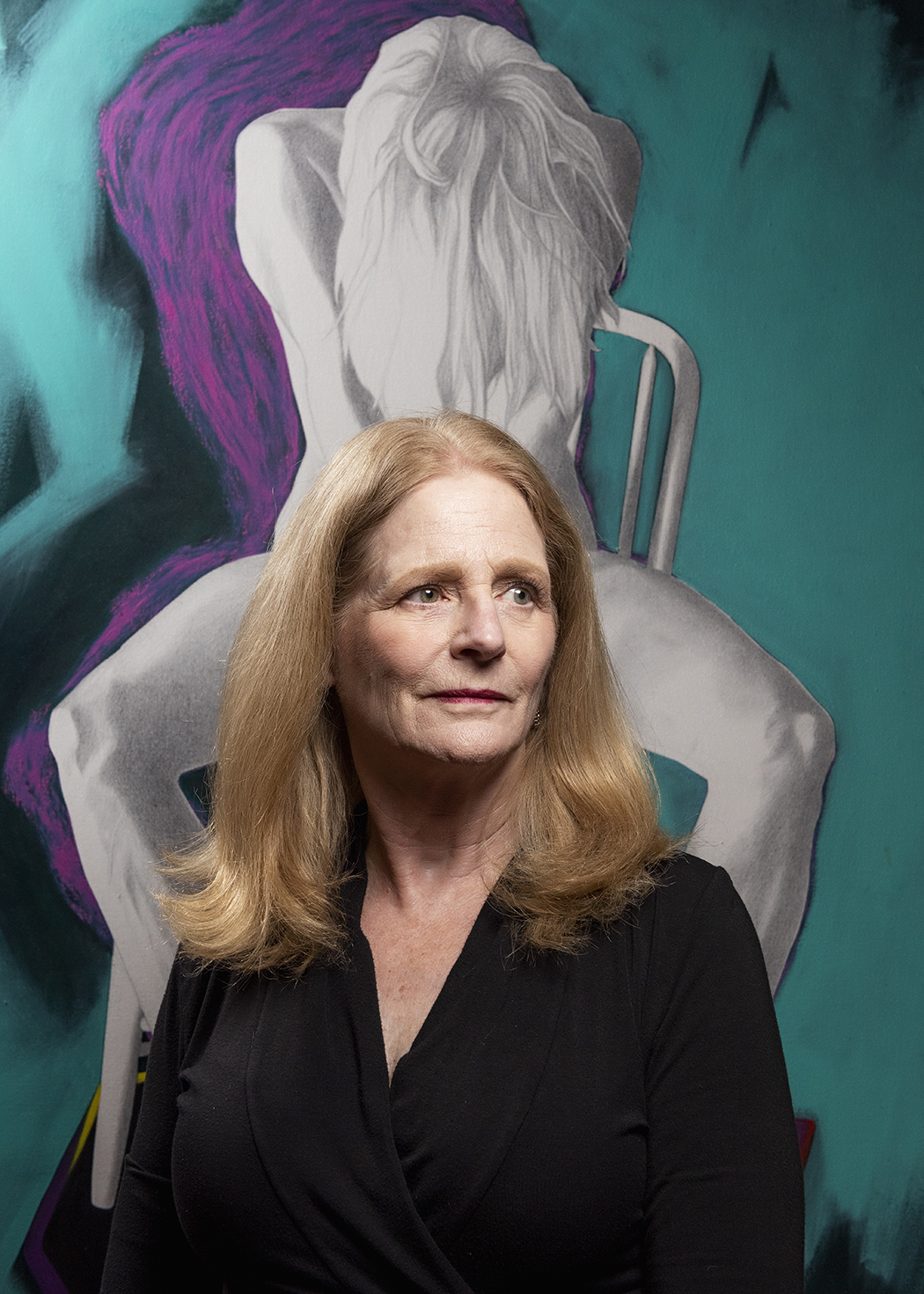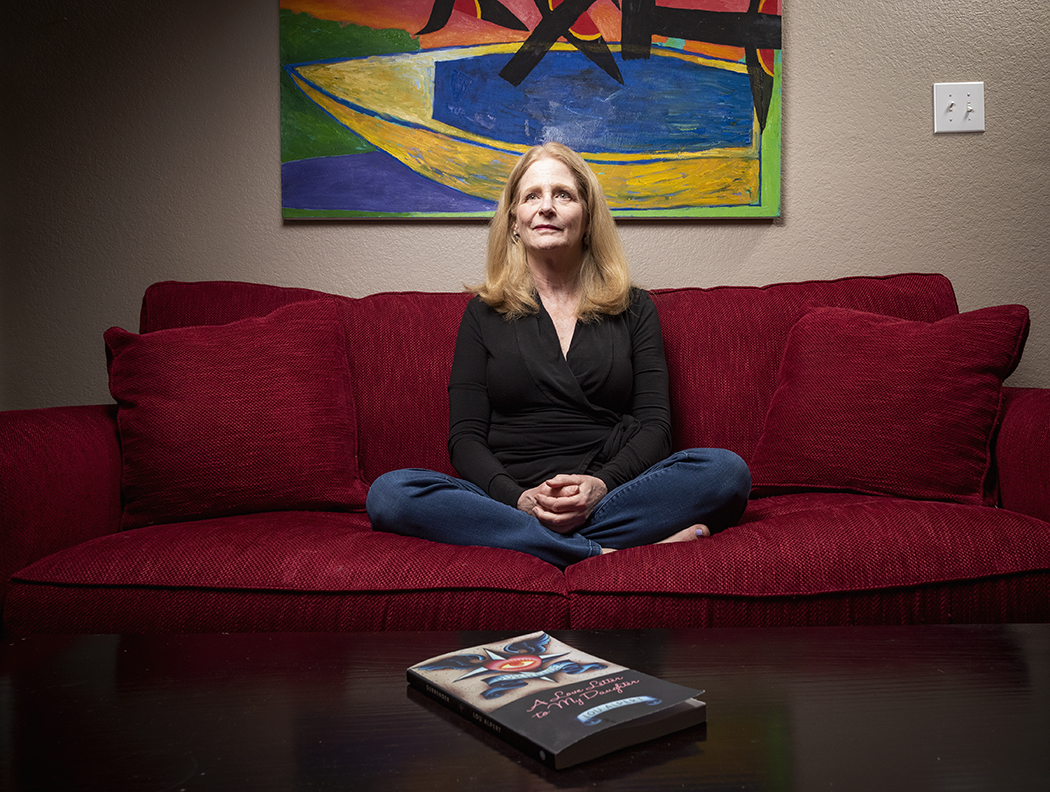
Lakewood neighbor Lou Alpert awoke Dec. 1, 2017, to a CNN video of her visibly pregnant daughter being confronted by a policeman while preparing to shoot heroin in a New Mexico alley.
The story was picked up by news outlets worldwide and went viral within hours. The officer, Ryan Holets, was later honored at the State of the Union address for adopting the addict’s daughter, Hope.
For CNN, it was another sad story about the opioid crisis in the United States. For Alpert, it was the culmination of a five-year battle coping with the fallout of her daughter’s heroin addiction. It was also the first time she had seen her daughter, Crystal Champ, in five years — other than in mugshots.
More than a year later, Champ is clean, and Alpert has found healing through writing. Her book, “Surrender: A Love Letter to My Daughter,” will be released April 25 to counsel and encourage those living with the chaos of loving an addict.
“The eye-opener was that I was as addicted to Crystal’s addiction as she was to heroin,” Alpert says. “It’s about self-care. How do you not go down the tubes with them?”
The book includes nearly three years of text messages that chronicle the highs and lows of Alpert’s relationship with Champ after she started using heroin with her boyfriend in 2013. The pair was living in Santa Fe, New Mexico, and started sharing painkillers with a dying friend. They quickly moved to heroin.
As Champ sank deeper into her addiction, so did Alpert. She paid Champ’s overdue bills, bought her phones, bailed her out of jail and, on occasion, sent money for drugs so her daughter wouldn’t experience life-threatening withdrawal symptoms without medical help. When Champ went missing for six weeks, Alpert called the morgue.
But the most harrowing experience was finding her daughter in a shooting den while on an intervention road trip. The room was dark and dirty with dishes piled high in the sink and a moldy muffin on the kitchen table. Syringes littered the floor.
Alpert found Champ lying on a mat. She weighed less than 90 pounds. Needle marks marred her arms. The skin between her fingers and toes was red and swollen from injections. When those veins collapsed, Champ moved to her neck.
“Looking at Crystal, so small and broken, I forgot my fear and anger and just fell in love with her again,” Alpert writes. “I wanted to save her.”
Champ agreed to a seven-day detox program, followed by a monthslong stint in a rehabilitation facility. But getting help wasn’t easy. Aside from the sheer cost of the programs, Champ had to pay for medications, a tuberculosis test and a medical exam before arriving at the facility. She didn’t have insurance.
When Alpert took her for a medical exam at an urgent care on Mockingbird and Abrams, the nurse asked Champ if she had an eating disorder. Champ looked the woman in the eyes and said, “No, I shoot heroin in my neck.”
Alpert took the brutally honest comment as a positive sign. At least her daughter was being truthful about her addiction. But that optimistic outlook wouldn’t last. Champ relapsed multiple times and found herself living in her car. When she wrecked it in a drug-related crash, she lived under a bridge on the streets.
It was a long fall for someone who graduated from Dallas Academy, was crowned homecoming queen and earned a college degree.
“It was never her plan to be a heroin addict, and it’s not that she didn’t want to get clean,” Alpert says. “But it’s the kind of high that, once you’re addicted, living without it doesn’t seem worthwhile.
“She gave up everything for heroin — her family, a bed, shower and food. We thought we could fix Crystal, and I don’t think any of us were listening to her.”
In the end, it took CNN and a policeman to save Champ. Alpert is learning to accept that strangers helped her daughter find salvation — a goal the real estate agent had worked toward for years.
While Champ is working on her own book, Alpert hopes to share her experiences to help other parents. She’s also launching a blog where she urges family members to avoid isolation and embrace a new reality. The hope is that sharing her story will replace neighbors’ judgment with empathy.
“When I first told people Crystal was using heroin, they looked at me like I was the worst person in the world,” Alpert says. “I didn’t make that choice for her. I didn’t put the needle in Crystal’s arm.
“As parents, we can only make so many choices. The best we can do is be there for our children when they need us. I have a voice that a lot of parents don’t have. My child lived.”






